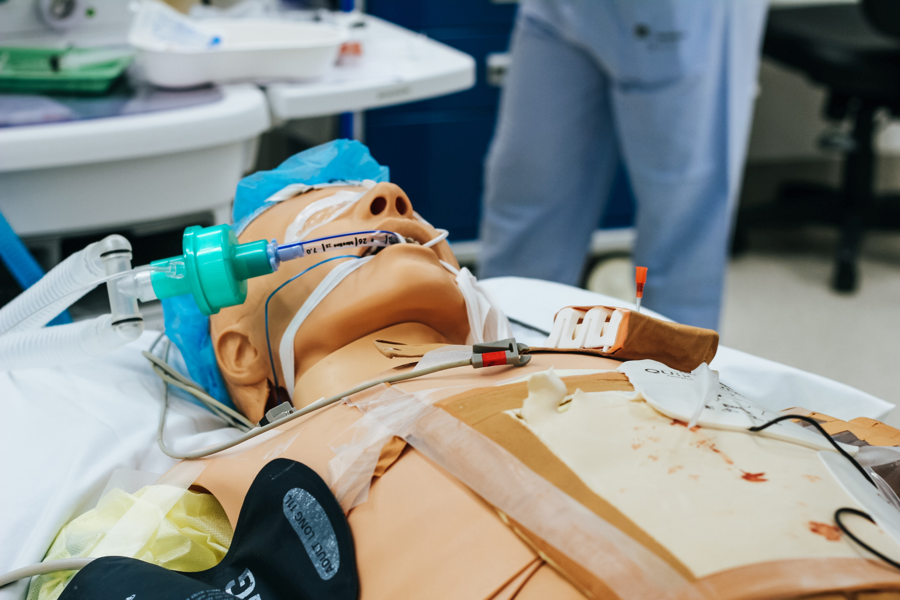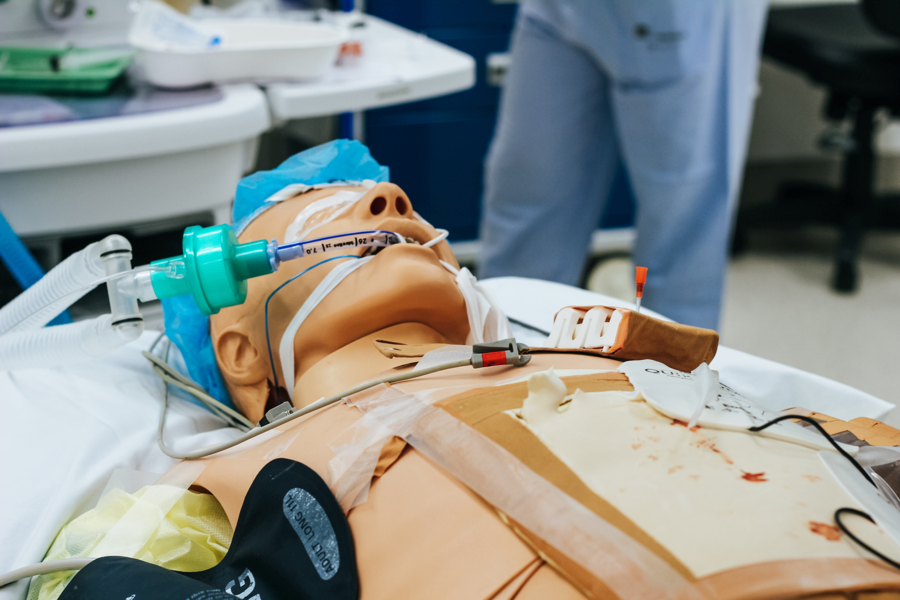
Master of Science in Nursing (MSN)
-
 EveryNurse Staff
EveryNurse Staff
- Last Updated: October 24, 2023

What Is an MSN Degree?
A Master of Science in Nursing (MSN) is a clinical and research-focused graduate degree, typically requiring 2-3 years of full-time study. The goal of an MSN program is to prepare registered nurses for advanced practice roles through coursework and independent study in specialties such as administration, informatics, education, and more.
MSN programs also prepare students to take on greater responsibility in clinical care settings, where they can work as part of a team to assess patient health needs, design and implement treatment plans and patient education programs, and deliver care that is safe, compassionate, and evidence-based. Many MSN programs incorporate leadership development into their curricula to prepare students for roles as advanced practice registered nurses and nursing administrators.
Benefits of an MSN Degree
- MSN-educated nurses earn significantly more than their colleagues with a bachelor’s degree and are among the highest-paid health care professionals in the U.S.
- Graduating with an MSN Degree allows you to expand your scope of practice and pursue positions in leadership and administration.
- With a Master of Science in Nursing comes greater clinical autonomy, which allows you to take on more responsibility and provide more direct patient care.
- In some states, registered nurses with a master’s degree may be able to prescribe medication.
- MSN programs prepare graduates for roles as advanced practice registered nurses which can translate to higher-paying specialty roles in leadership, research, clinical care management, and more.
- Advanced practice nurses with a master’s degree can fill a critical need in our health care system, particularly in a time when the U.S. is experiencing a physician shortage and nursing shortage.
MSN Degree Options
RN to MSN Programs
BSN to MSN Programs
To enter a BSN to MSN program, students must hold a Bachelor of Science in Nursing degree and an active RN license. These programs are typically designed to build upon skills learned in the bachelor’s degree program with additional coursework in research, leadership, and evidence-based practice.
Students can choose from various Masters in Nursing specialties while enrolled in a BSN to MSN program, leading to positions such as nurse practitioners, nurse managers, and nurse educators. The most widely offered specializations are administration, education, and advanced practice registered nursing. Regardless of specialty, the program will include core coursework in nursing theory, pharmacology, pathophysiology, ethics, research, and education.
Entry Level Master's in Nursing
An Entry Level Master’s in Nursing program, which is often referred to as a Direct-Entry Master’s in Nursing (MSN), offers a pathway for students with a baccalaureate degree in a field outside of nursing to obtain RN licensure and proceed to graduate-level courses to earn an MSN degree. Entry Level Master’s in Nursing programs are typically structured as three-year accelerated programs for individuals without previous nursing education.
During their first year in the program, students will complete an intensive course of study that culminates in licensure as an RN. Students at this stage are eligible to sit for the National Council Licensure Examination (NCLEX-RN). In the remaining years of the program, nurses will select an area of specialization and complete coursework, clinical rotations, and residency hours in the focus area of their choice.
Dual Master's Degree
Online MSN Degree
Online Learning Options
Graduate nursing programs are increasingly using the Internet to deliver content, facilitate class discussions, and create interactive experiences that cater to the needs of a diverse population of students. As a result, online learning has become an increasingly popular option for nurses looking to advance their education.
Online learning options may include “blended”, “hybrid”, or 100% online programs that can be completed at your own pace. As the names imply, blended and hybrid course formats incorporate a “blend” of face-to-face classroom sessions, online instruction, and virtual modules. Online instruction may consist of pre-recorded lectures and materials along with live chat rooms that foster student-to-student and teacher-to-student interactions.
MSN Degree Specialties
Nurse-Midwifery
Nursing Education
Nursing Informatics
Family Nurse Practitioner (FNP)
Neonatal Nurse Practitioner (NNP)
Adult-Gerontology Primary Care Nurse Practitioner (AGPCNP)
Nursing and Healthcare Administration
Find MSN Programs Near Me
Additional Resources










